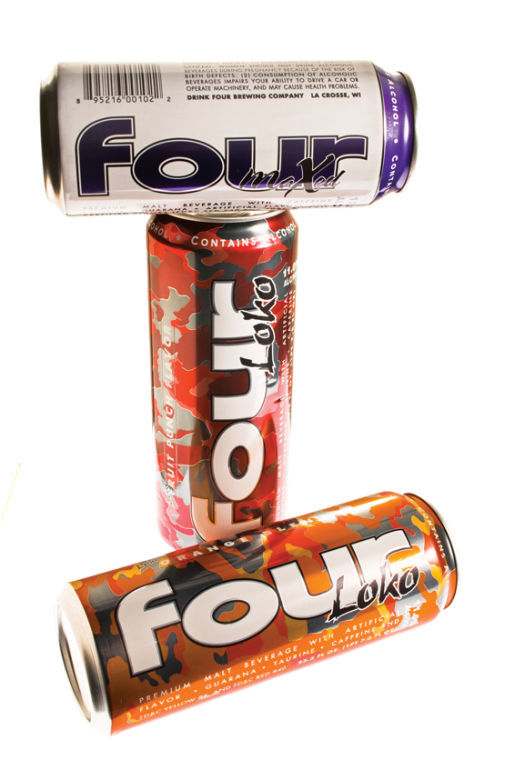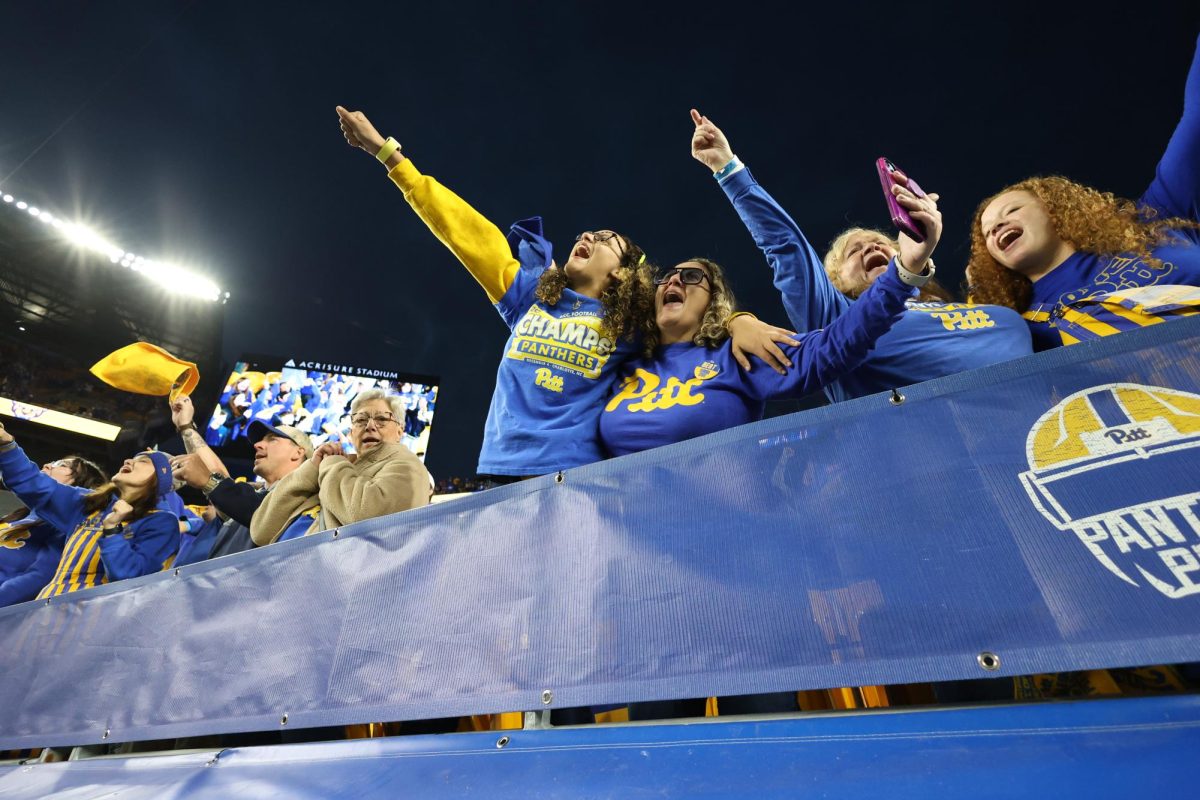Beer Edition: Still on the shelves: Four Loko to carry on despite lawsuit
April 18, 2014
Media reports of the demise of Four Loko, the popular alcoholic beverage, proved to be “totally bogus” and a “#falsealarm,” according to the company’s Twitter account.
Phusion Projects, the Chicago-based company behind Four Loko flavored malt beverages, settled last month with attorney generals from 20 states, including Pennsylvania, and the city attorney of San Francisco over allegations that the company encouraged dangerous misuse of their products and marketed its product toward underage consumers.
Four Lokos gained popularity and notoriety during the days when the drink pre-mixed alcohol with caffeine levels equal to two cups of coffee. CNN reported in 2010 a police investigation that called the drinks a “blackout in a can,” because of its ingredients. Phusion Projects removed the caffeine after the Food and Drug Administration issued the company a warning letter that year.
News site DNAinfo Chicago misinterpreted the settlement and falsely reported on March 25 that the company would terminate production of Four Loko. The company reassured its Twitter followers in late March that the death sentence was a mistake and that the rumors Four Loko had been taken off the market indefinitely were false.
The case was a multistate investigation of Phusion Projects led by the attorney general offices of Arizona and Maryland. Senior Deputy Attorney General Jessie Smith handled the case for the Pennsylvania office of Attorney General. According to the settlement, Phusion Projects depicted individuals who appear to be underage persons or misusing alcohol on their social media accounts in addition to using images of Santa Claus in their advertisements.
As part of the settlement, Phusion Projects has agreed to not encourage mixing caffeine with alcohol, hire models or actors who appear to be under the age of 21 to promote the company’s alcoholic products, promote flavored malt beverages on university properties except in retail establishments or depict the misuse of alcohol or consumption by underage persons on its media accounts.
Not much is set to change around Pitt’s campus.
Students and local beer distributors said they do not remember seeing physical promotional advertising for the product, and the majority of the allegations were web-based. The product is still on the market, and according to Phusion Project’s product locator, is available at more than 50 locations within a 10 mile radius of the University.
The drink contains between 6 percent and 12 percent alcohol by volume, depending on state regulations. At 12 percent, the drink contains the alcohol equivalent of four to five regular beers.
The settlement cited two holiday advertisements as evidence. In the first image, Santa Claus sits on a chair while holding a Four Loko can. A reindeer looks up at the character, and above him reads, “There’s a reason he’s jolly.”
The second advertisement reads, “Surviving the holidays! Thanks to a steady diet of Four Loko and cookies!” pasted above a close-up image of Santa Claus holding a Four Loko can.
Holiday figures paired with alcohol in advertisements are not a new concoction, though.
Nils Honczar, evening manager at Mellinger’s Beer Distributor on Semple Street, said he hasn’t seen the Four Loko holiday advertisements, but has seen Santa Claus on Christmas beers and European beers, such as the label on Penn Brewery’s St. Nikolaus Bock Bier, a seasonal holiday beer available between November and January.
“Everyone likes Santa Claus,” Honczar said, drawing a comparison between the advertisement and beer label. “I don’t think anyone would say [Penn Brewery is] trying to market towards children.”
Smith said the attorney generals led an investigation of Phusion Projects, as they believed the company was marketing toward youth through social media and specific advertisements, as well as continuing to encourage the combination of alcohol and caffeine.
Although Phusion Projects removed caffeine from the product’s recipe, Smith said the company hosted contests soliciting drink recipes that combined their products with Coca-Cola, coffee and other caffeinated liquids, which would result in a similar effect of the original Four Loko recipe.
Smith said she believes the cessation of this promotion will benefit state residents. A portion of the $400,000 monetary settlement will also be used to help fund a state education and outreach group.
Phusion Projects President Jim Sloan said in an email that his company did not violate any laws and disagrees with the allegations, but considers the agreement a way to move forward and highlight the company’s commitment to responsibility.
Sloan said his company monitors its social media sites, removes unacceptable posts and utilizes “age-gates,” which require visitors to enter their date of birth to ensure only adults who are 21 and older can view the content.
“This is not an easy task, because of the constantly evolving nature of social media,” Sloan said.
The U.S. Food and Drug Administration warned Phusion Projects in 2010 that caffeine was not a legal additive in alcoholic beverages and warned the company to decaffeinate Four Loko after the drink was blamed for a series of emergency room visits, fatal car accidents and resulting wrongful death lawsuits.
Shepard Siegel, a professor at McMaster University in Ontario, Canada, published the report “The Four-Loko Effect” in 2011 claiming that caffeine is not the definitive culprit.
“Rather, it is likely that Four Loko-type drinks are especially effective as intoxicants because they provide alcohol in an unusual context,” Siegel said in his report.
According to Siegel, drug and alcohol tolerance partially results from what cues consumers associate with the drug, and when altered — such as by changing the container, taste, environment or method of consumption — the consumer’s tolerance lowers. Siegel said Four Loko has “novel flavoring” meant to taste like fruity flavors such as watermelon and blue raspberry.
Sloan said in his statement that Phusion Project still believes adults can consume alcohol and caffeine combinations safely.
Diana Bellisario, owner of Mellinger’s Beer Distributor, said she does not remember Phusion Projects advertising in her store.
“I think it was just that everybody was hearing about it. It was new. Nobody else had ever [mixed caffeine and alcohol in a can],” Bellisario said. “I guess that’s why it took off that way.”
Bellisario said she does not remember exact numbers, but she remembers that Four Loko sold well before Phusion Projects removed the caffeine — but not as well as other popular products, such as Natural Light Beer.
“The numbers weren’t fantastic, but it was good,” Bellisario said. “I carry it now, but seriously it just sits.”
Bellisario said she doesn’t believe the company was pursuing a young crowd, and did not have any instances where underage people attempted to buy Four Loko at her store.
However, while Bellisario and Honczar said their customer base is primarily 21-25 years old, Bellisario said older customers in their 30s and 40s did not purchase the product.
Peter Lorei, a sophomore studying computer science, said he believes Four Loko was targeted toward the college demographic, as the amount of alcohol per can, and formerly the caffeine, appeals to the college party scene.
Lorei said he couldn’t recall seeing advertising for the product, and said it got around “by word of mouth among young people.”
The FDA issued warnings in 2012 to other companies, including United Brands Inc., which produced Joose alcoholic beverages — also formerly caffeinated — at the same time as Phusion Projects.
Smith said her office does not usually confirm or deny if they are investigating other companies, but said she does not think there are similar instances of companies selling caffeinated drinks or encouraging the mixture.
All in all, it’s not the end of Four Loko, nor is it likely to be the end of underage drinking.
“As we all know, underage drinking and alcohol abuse are serious problems in need of serious solutions,” Sloan said. “They will not, however, be solved by singling out specific products or alcoholic beverage categories.”



